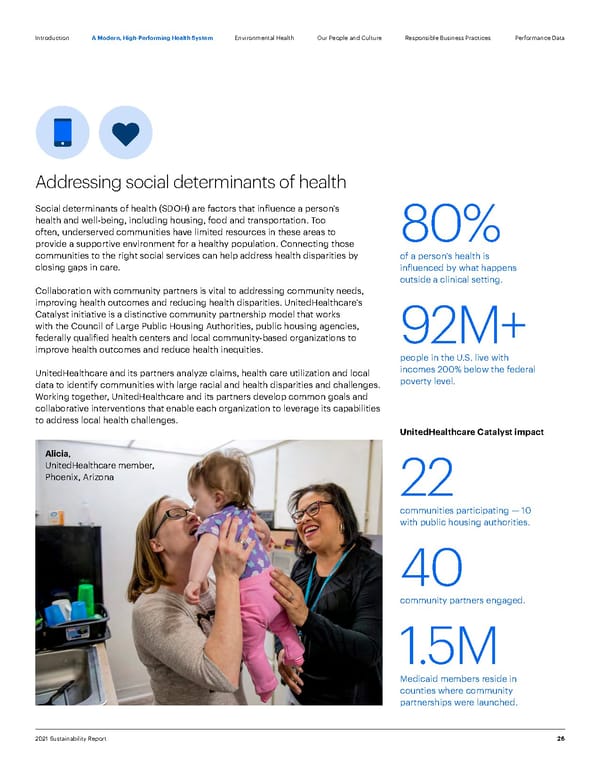Introduction 26 2021 Sustainability Report A Modern, High-Performing Health System Our People and Culture Environmental Health Responsible Business Practices Performance Data Addressing social determinants of health Social determinants of health (SDOH) are factors that influence a person’s health and well-being, including housing, food and transportation. Too often, underserved communities have limited resources in these areas to provide a supportive environment for a healthy population. Connecting those communities to the right social services can help address health disparities by closing gaps in care. Collaboration with community partners is vital to addressing community needs, improving health outcomes and reducing health disparities. UnitedHealthcare’s Catalyst initiative is a distinctive community partnership model that works with the Council of Large Public Housing Authorities, public housing agencies, federally qualified health centers and local community-based organizations to improve health outcomes and reduce health inequities. 80% of a person’s health is influenced by what happens outside a clinical setting. 92M+ people in the U.S. live with incomes 200% below the federal poverty level. UnitedHealthcare and its partners analyze claims, health care utilization and local data to identify communities with large racial and health disparities and challenges. Working together, UnitedHealthcare and its partners develop common goals and collaborative interventions that enable each organization to leverage its capabilities to address local health challenges. UnitedHealthcare Catalyst impact 22 communities participating — 10 with public housing authorities. 1.5M Medicaid members reside in counties where community partnerships were launched. 40 community partners engaged. Alicia , UnitedHealthcare member, Phoenix, Arizona
 ESG Report | UnitedHealth Group Page 25 Page 27
ESG Report | UnitedHealth Group Page 25 Page 27